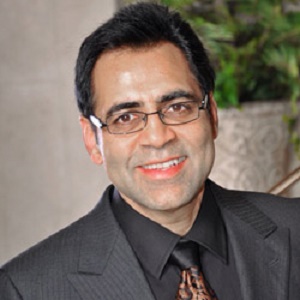CenturyLink is resolving the ‘build’, ‘buy’ or ‘ally’ conundrum with a simple strategy: it is using them all. In developing its Big Data practice and IT services portfolio, the company has acquired key capabilities – analytics firm Cognilytics in December 2015, for example – has created a substantial IT services delivery team, and has partnered with major data management providers, notably Cloudera and SAP. Today, CenturyLink is focused on refining this strategy, gathering the resources needed to capitalize on the key tenets of successful partnering: as CFO for SAP North America, Arlen Shenkman described it, “Partnering can be one of the quickest and simplest ways to grow revenue and limit costs. At SAP, we would pursue a partnership when we identify a market trend or opportunity and identify a partner offering that is beyond or adjacent to our core competencies. If the prospective partner and its offerings are complementary to our business, our cultures mesh, and we can negotiate equitable terms, then partnering can be a win-win for all involved.”
So what are the market opportunities and market adjacencies that CenturyLink is looking to tap into through its partnership with SAP, and its most recent ‘buy’ – New Jersey-based SEAL Consulting, Inc.?

At the end of 2015, CenturyLink signed a global premium supplier agreement with SAP on the HANA Enterprise Cloud (HEC) platform, enabling SAP to white label the company’s infrastructure and application management services. For CenturyLink, this relationship provided quick access to market winning in-memory technology and SAP’s cloud-based data management solutions – capabilities that are becoming increasingly critical in the marketplace as enterprises look to engage in digital transformation. As Gary Gauba, chief enterprise relationship officer and president, Advanced Solutions Group, CenturyLink, explained, every customer is now looking to cloud and to digitization as the means of maintaining competitive edge, and “HEC is a big step in terms of an enterprise moving in that direction.” Gauba also noted the “phenomenal success” this partnership has brought to CenturyLink: US customers that have signed up for the SAP HEC managed service are in the “double digits” and CenturyLink is now looking to “expand the US success into Europe and Asia PAC.” CenturyLink’s Canadian operation is similarly committed to roll out of the SAP HEC managed services over 2017, and has been building the resources needed to establish the service as foundation for delivering other value added offerings to customers.
The CenturyLink-SAP relationship was predicated on CenturyLink’s status as one of five SAP global preferred infrastructure providers; however, with sale of its infrastructure facilities this past November, CenturyLink is shifting focus to the supply of cloud-based IT managed services. This shift is part and parcel of challenges in the infrastructure services market where price wars between leading IaaS providers have driven suppliers to differentiate through the delivery of value added services – and, likely, an outcome of the high cost of maintaining an extensive data centre footprint (CenturyLink had 60+ facilities worldwide). Commanding hefty service fees, cloud-based managed services, on the other hand, are experiencing significant growth as customers come to recognize the benefits of outsourcing increasingly complex IT management requirements, reducing maintenance resource costs and concentrating on core strengths that will generate competitive advantage for products or services. One research firm has calculated a CAGR of 16.6 percent from 2016 to 2021 for the global cloud services market (to reach an estimated US $76.73 billion in 2021)[1], a healthy growth rate that reflects market awareness of the managed services value proposition.
 According to Gauba, “infrastructure is just one element: it’s really a managed offering which combines several elements, including infrastructure, which is included in the SAP HEC offering.” And while CenturyLink will leverage its former colocation space (the company retained some equity in these assets during the sale) “we just don’t want to own the real estate. We can access colo space anywhere, and we have the buying power we need to get the best possible deal.” So while infrastructure delivery will remain the same, CenturyLink is “going to double down on areas where we can drive more value for our customers with SAP,” he added. Here, the company’s very large managed services business will be critical – the team that builds out the hardware, the configuration, support for infrastructure, and support on the SAP side, including migration services.
According to Gauba, “infrastructure is just one element: it’s really a managed offering which combines several elements, including infrastructure, which is included in the SAP HEC offering.” And while CenturyLink will leverage its former colocation space (the company retained some equity in these assets during the sale) “we just don’t want to own the real estate. We can access colo space anywhere, and we have the buying power we need to get the best possible deal.” So while infrastructure delivery will remain the same, CenturyLink is “going to double down on areas where we can drive more value for our customers with SAP,” he added. Here, the company’s very large managed services business will be critical – the team that builds out the hardware, the configuration, support for infrastructure, and support on the SAP side, including migration services.
Designed to support this effort, CenturyLink acquisition of SAP solution provider SEAL Consulting Inc. will deliver both volume and vertical variety. As Gauba explained, “the SEAL acquisition gives us a lot more bench strength – deep expertise around SAP HANA. Vertically, they are really strong on the retail side – in the SAP retail solution – as well as on the manufacturing side. This gives us a big boost – it’s a combination of talent in the US and in India, which will help us support the customers we have signed.”
While precise numbers have not been released, SEAL is said to employ between 500 and 1,000 employees across its US and Indian locations – all of whom were given offers, and most of whom stayed – including implementation and support experts across a range of SAP offerings (SAP ERP Central Component, SAP S/4HANA, SAP Business Suite, SAP BW/4HANA, SAP Ariba, SAP Hybris, SAP CRM, SAP Basis, SAP Security, SAP Fiori, and SAP MII). But beyond “bench strength,” SEAL also brings industry specific solution in retail, an area that CenturyLink’s Big Data and Advanced Analytics solutions group had explored, in manufacturing – for example, its Manufacturing Integration and Intelligence – and in consumer goods, as well as a SAP lab environment. In addition, SEAL had 18 odd years of consulting experience in these areas, expertise that CenturyLink will leverage to accelerate value for customers. SEAL’s sweet spot is the enterprise space, Gauba noted, positioning that aligns with CenturyLink’s evolving focus on service delivery for SAP S/4HANA in-memory ERP suite and also SAP S/4 Public Cloud, which the company is planning to ramp up in the near term.
For the customer, CenturyLink’s goal is to deliver an “integrated solution offering” out of the IT Services business, which handles managed services, consulting and other professional offerings. With SAP HEC managed services and consulting linked under one IT Services umbrella, clients will have a single point of contact for an integrated SAP stack. According to Gauba, HEC customers will be assigned a client services partner who is a SAP SME : “he/she is the quarterback who will ensure the customer gets full value, and who will bring in resources with technology skill and vertical expertise from different practice areas as needed so CenturyLink can help solve the customer’s business problem.”
CenturyLink’s investment in SAP capabilities is also aimed at tapping into a market trend that by virtually all accounts moves beyond ‘digital transition’ to constitute a next tech ‘revolution’. SEAL expertise in manufacturing integration is a good example of the kind of critical resource that will be important as providers work to address the considerable and growing IoT demand for cloud-based computing and analytics capabilities. On this score, CenturyLink is also banking on its networking assets, which will be bolstered considerably through the Level 3 acquisition. Level 3 will add 200,000 additional miles of fibre to the company’s current 550,000, bringing CenturyLink to over 750,000 miles of fibre cable in 100 countries over 6 continents. “You hear a lot about the IoT revolution,” Gauba noted, “but what is the most important thing? Without the network, the ‘connected world’ is going to be a big problem.”
Continued alignment with SAP, which is making its own investment in IoT and cyber security, will also be a critical success factor for CenturyLink in the IoT era.“By 2020 you will have 1.8 trillion connectable objects, which will generate 44 zetabytes of data – the amount of data that will be generated is humungous. The question on everyone’s mind is how do I monetize the data? To do this, you need a good data platform,” which Gauba believes is best achieved through the combination of Hadoop with HANA. And depending on the business problem, on top of this will be layered AI or machine learning (Cognilytics capabilities) to leverage data value. “This is the path the entire market is moving towards,” he argued, and with 33 percent of global Internet traffic travelling through its network, with ‘SAP-as-a-Service’, and some interesting Cognilytics deep learning algorithms, Gauba expects CenturyLink is well positioned for the IoT future: “With the core assets that we have, we are really at the centre of this perfect storm.”
[1] Markets and Markets. Cloud Managed Services Market by Managed Services (Business Service, Network Services, Security Services, Data Center Services, Mobility Services), by Deployment, by Organization Size, by Industry Application & by Region – Global Forecast to 2021. May, 2016. http://www.marketsandmarkets.com/pdfdownload.asp?id=195317068









SAP Provides around 20 authorization objects which are required for reporting administration.The methodologies used in the SAP ecosystem are too numerous to count